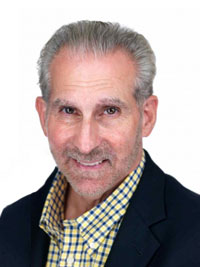 Criterion behavior focuses on what you (the individual person) bring to the table. Your imagination, inventiveness, communication skills, cognitive skills, productivity, work ethic, character, personality, courage, self-respect and respect for other people are paramount for life success. This, ultimately, is much more important than what your father does for a living, your zipcode, or the ‘reputation/rating’ of your college. These factors can be very important in terms of networking opportunities, and social connections. But when the “pedal hits the metal,” we all have to ultimately drive on our own.
Criterion behavior focuses on what you (the individual person) bring to the table. Your imagination, inventiveness, communication skills, cognitive skills, productivity, work ethic, character, personality, courage, self-respect and respect for other people are paramount for life success. This, ultimately, is much more important than what your father does for a living, your zipcode, or the ‘reputation/rating’ of your college. These factors can be very important in terms of networking opportunities, and social connections. But when the “pedal hits the metal,” we all have to ultimately drive on our own.
In essence, what you actually do defines your value. Criterion behavior allows us to stand on our own, be self-sufficient, and own responsibility for our actions. It places the control of our life in our hands.
Lionel Logue is a brilliant example of the criterion behavior model. In The King’s Speech he restores England’s King George VI’s confidence and courage to lead his people during World War II. Morale is a critical factor in war, both in terms of actual combat and in terms of surviving the perils and anguish of deprivation. Logue was not University trained, nor was he a certified speech therapist. Hailing from Australia where he was a professional actor and elocutionist, he innovated many original techniques to help returning World War I veterans overcome shell shock, and literally restore their voice so they could function in society. He immigrated to London in the 1920s and “set up shop” on Harley Street. King George’s wife found Logue, and subsequently his original and very creative treatment techniques restored the King’s voice. The rest is history!
In line with this, Steve Jobs (1955-2011) is one of the greatest examples of 21st Century criterion behavior. He left Reed College after one semester, and founded Apple Computer with Steve Wozniak when he was 21 years old. Jobs had a burning desire to create and achieve. He was clearly on another dimension. He was born in San Francisco. He was adopted at birth and moved to Silicon Valley when he was 5 years old. His father was a machinist, and his mother was a payroll clerk. His birth parents were graduate students at the University of Wisconsin. His father was Syrian, and his mother was an American of German descent. The rest is history.
Keep in mind, Mark Twain (1835-1910) stated: “I never let my schooling interfere with my education.” Formal education is very important; passions are critical. They should be encouraged and supported. Passions are the emotional drivers for a sound and expansive education. Passions are the true stuff of dreams.
Shareholders expect criterion behavior from their boards, managers, and employees. They are less interested in their pedigree and significantly more interested in their integrity, brain power, and character. And results from socially responsible investments. What a corporation brings to its shareholders, by definition its co-owners and partners, is the company’s criterion behavior. Proper stewardship drives a company’s criterion behavior which in turn drives the company’s mission. The key is to be in synch, to be solution driven, and to operate above board at all junctures.
To contact Christopher Bayer directly, please email Christopher.Bayer@TheShareholderActivist.com.








